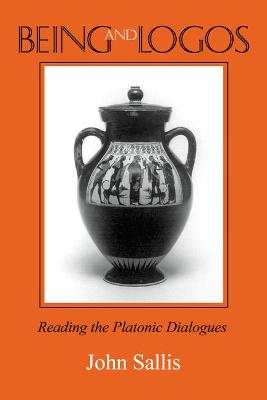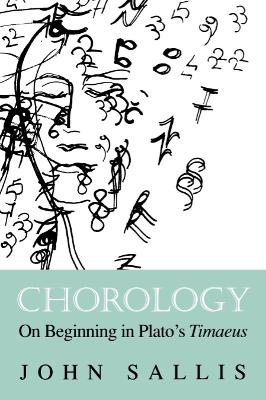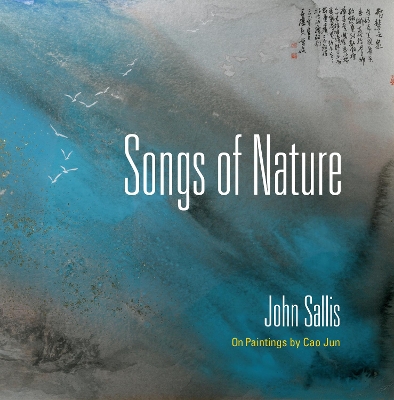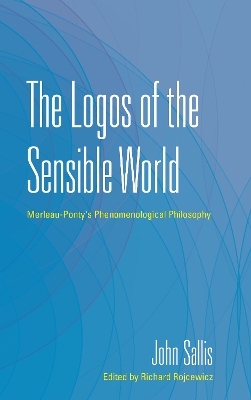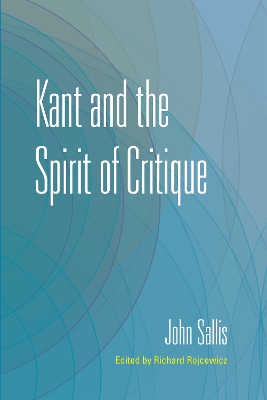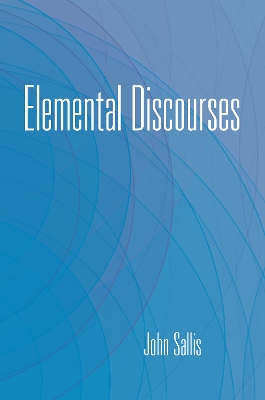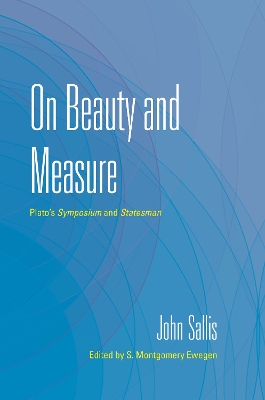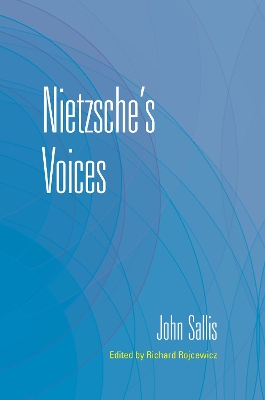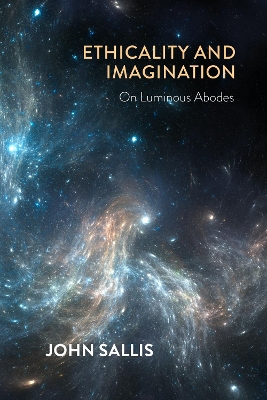The Collected Writings of John Sallis
9 total works
"This excellent work . . . deserves the serious consideration of all who are interested in contemporary philosophy as well as those who concern themselves with ancient philosophy, especially Plato." -Review of Metaphysics
In Chorology, John Sallis takes up one of the most enigmatic discourses
in the history of philosophy. Plato's discourse on the chora-the chorology-forms the pivotal moment in the Timaeus. The implications of the chorology are momentous and communicate with many of the most decisive issues in contemporary philosophical discussions.
This latest philosophical text by John Sallis is inspired by the work of contemporary Chinese painter Cao Jun. It carries out a series of philosophical reflections on nature, art, and music by taking up Cao Jun's art and thought, with a focus on questions of the elemental. Sallis's reflections are not a matter of simply relating art works to philosophical thought, as theoretical insights and developments run throughout Cao Jun's writings and inform many of his artistic works. Sallis maintains abundant points of contact with Chinese philosophical traditions but also with Western philosophy. In these reflections on art, Sallis poses a critique of mimesis and considers the relation of painting to music. He affirms his conviction that the artist must always turn to nature, especially as reflections on the earth and sky delimit the scale and place of what is human. Full-color illustrations enhance this provocative and penetrating text.
This volume of the collected writings of John Sallis presents a two-semester lecture course on Maurice Merleau-Ponty given at Duquesne University from 1970 to 1971. Devoted primarily to a close reading of the French philosopher's magnum opus, Phenomenology of Perception, the course begins with a detailed analysis of The Structure of Behavior. The central topics considered in the lectures include the functions of the phenomenological body; beyond realism and idealism; the structures of the lived world; spatiality, temporality, language, sexuality; and perception and knowledge. Sallis illuminates Merleau-Ponty's first two works and offers a thread to follow through developments in his later essays. Merleau-Ponty's notion of the primacy of perception and his claim that "the end of a philosophy is the account of its beginning" are woven throughout the lectures. For Sallis's part, these lectures are foundational for his extended engagement with Merleau-Ponty's The Visible and the Invisible, which was published in Sallis's Phenomenology and the Return to Beginnings.
This volume of the Collected Writings of John Sallis presents his lecture courses on Kant. Each course was devoted respectively to one of Kant's three Critiques, and so the book as a whole treats the entirety of the Kantian critical project. Sallis displays here, as he does in all his lecture courses, an uncanny ability to open up dense philosophical texts. The matters Kant deals with—in theoretical, practical, and aesthetic philosophy—are difficult in themselves, and Kant's writings might at times seem so convoluted as to magnify the difficulty. Sallis patiently and successfully lays out the issues and the critical approach to them, such that the reader is led step by step into the very core of Kant's spirit of critique. This volume makes Kant accessible to students, while the most advanced scholars will also profit from it.
John Sallis's thought is oriented to two overarching tasks: to bring to light the elemental in nature and to show how the imagination operates at the very center of human experience. He undertakes these tasks by analyzing a broad range of phenomena, including perception, the body, the natural world, art, space, and the cosmos. In every case, Sallis develops an original form of discourse attuned to the specific phenomenon and enacts a thorough reflection on discourse itself in its relation to voice, dialogue, poetry, and translation. Sallis's systematic investigations are complemented by his extensive interpretations of canonical figures in the history of philosophy such as Plato, Aristotle, Kant, Schelling, and Hegel and by his engagement with the most original thinkers in the areas of phenomenology, hermeneutics, and deconstruction.
On Beauty and Measure features renowned philosopher John Sallis' commentaries on Plato's dialogues the Symposium and the Statesman. Drawn from two lecture courses delivered by Sallis, they represent his longest and most sustained engagement to date with either work.
Brilliantly original, Sallis's close readings of Plato's dialogues are grounded in the original passages and also illuminate the overarching themes that drive the dialogues.
Nietzsche's Voices, a much-anticipated volume of the Collected Writings of John Sallis, presents his two-semester lecture course on Nietzsche offered in the Philosophy Department of Duquesne University during the school year 1971–72.
"Nietzsche is easy to read; his is apparently the easiest of all the great philosophies. Yet the easy intelligibility is deceptive. Nietzsche's writings make us believe we have understood when in fact we have not. His philosophy is actually the exact opposite of easy," says Sallis. With this warning always in mind, Sallis first discusses Nietzsche's life and the relevance of the ancient Greeks to his thought and then analyzes Nietzsche's views on truth, history, morality, and the death of God. The entire second half of the book is devoted to Nietzsche's main work, the tragic, comedic, poetic Thus Spoke Zarathustra.
Nietzsche's Voices offers a sensitive and brilliant introduction to the thought of Friedrich Nietzsche, as presented by one of today's most significant philosophers.
Ethicality and Imagination is the astounding conclusion to John Sallis's landmark trilogy launched with Force of Imagination and Logic of Imagination. In this new work, Sallis embarks on an unforgettable voyage spanning the cosmos and delving deep into what makes us human. If the first two works consider the question of being and thinking, respectively, the third and culminating volume takes up the question of action. In a series of highly original and always provocative meditations, Sallis articulates the way humans are rooted in their abodes yet not determined by them.
Ethicality and Imagination develops a new approach to the relation of the imagination to literature, ethics, political thought, and recent discoveries in astrophysics. It represents a brilliant conclusion to one of the most exciting works of thinking in the Continental school in recent decades.
